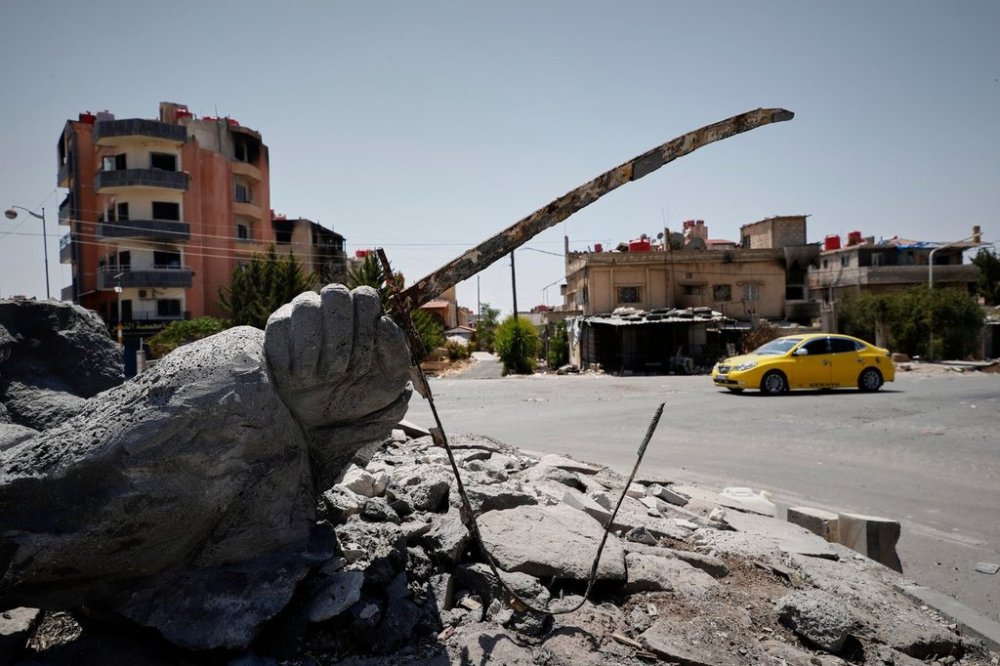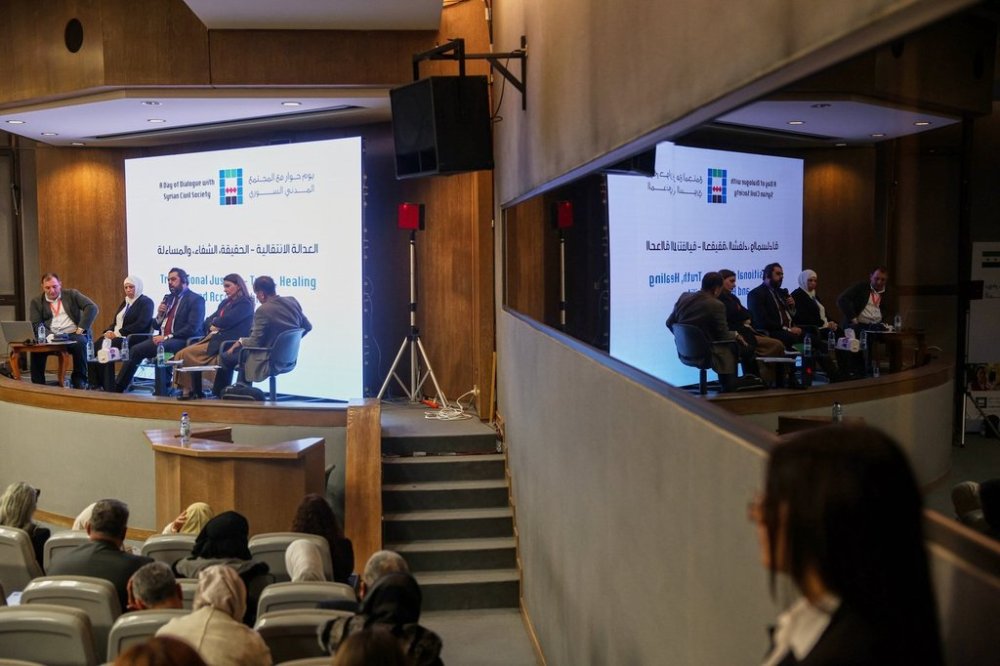After Assad’s fall, Syrians and EU officials hold rare meeting in Damascus
Advertisement
Read this article for free:
or
Already have an account? Log in here »
To continue reading, please subscribe:
Monthly Digital Subscription
$0 for the first 4 weeks*
- Enjoy unlimited reading on winnipegfreepress.com
- Read the E-Edition, our digital replica newspaper
- Access News Break, our award-winning app
- Play interactive puzzles
*No charge for 4 weeks then price increases to the regular rate of $19.00 plus GST every four weeks. Offer available to new and qualified returning subscribers only. Cancel any time.
Monthly Digital Subscription
$4.75/week*
- Enjoy unlimited reading on winnipegfreepress.com
- Read the E-Edition, our digital replica newspaper
- Access News Break, our award-winning app
- Play interactive puzzles
*Billed as $19 plus GST every four weeks. Cancel any time.
To continue reading, please subscribe:
Add Free Press access to your Brandon Sun subscription for only an additional
$1 for the first 4 weeks*
*Your next subscription payment will increase by $1.00 and you will be charged $16.99 plus GST for four weeks. After four weeks, your payment will increase to $23.99 plus GST every four weeks.
Read unlimited articles for free today:
or
Already have an account? Log in here »
DAMASCUS, Syria (AP) — Representatives of Syria’s civil society held rare open discussions Saturday in Damascus in the presence of officials from the European Union and the transitional government. They touched on sensitive topics including sectarian tensions, ethnic divisions and people killed by different sides.
The EU-organized meetings known as “The Day of Dialogue” are the first to be held in Damascus after taking place in past years Brussels. Saturday’s meetings came nearly a year after the fall of the 54-year Assad family rule in Syria in a stunning offensive by insurgent groups in early December.
The meetings that used to take place within the framework of the Brussels Conferences were mostly boycotted by then-President Bashar Assad’s government. The EU said Saturday’s meetings were organized in cooperation with Syrian civil society and the Syrian transitional authorities.

“The meeting that used to be held to talk about Syria is now being held in Syria,” Syria’s Foreign Minister Asaad al-Shibani said in a speech at the opening session held at a conference center in the southern outskirts of Damascus.
Al-Shibani added that Saturday’s meetings represent “a solid partnership with the civil society and our partners in the European Union.”
Michael Ohnmacht, chargé d’affaires of the EU delegation to Syria, said 500 people from Syria’s different religious and ethnic groups took part in the meetings and “this is something very positive.”
“This is what we hope for Syria’s future, to see this inclusive state which will be a state in the form of all its citizens,” Ohnmacht said.
Despite the changes in Syria over the past year, sectarian violence in the country’s coastal region in March and the southern province of Sweida in July between pro-government gunmen and members of the country’s Druze and Alawite minorities left hundreds of people dead.
Such acts of violence show that Syria still faces major crises in the 14-year conflict that has left half a million people dead.
“Today’s dialogue is the beginning of change and rebuilding Syria only happens through partnership based on respect between the state and civil society,” said Social Affairs Minister Hind Kabawat.

During one of the sessions on transitional justice and the fate of the missing, Syrians demanded answers on issues still pending, such as more than 130,000 people who went missing under Assad’s rule while an ethnic Kurd spoke about state discrimination they have faced for decades. Another spoke about violence against some women who belong to minority sects.
Mazen Darwish, a Syrian lawyer and one of the country’s most prominent activists who was repeatedly jailed in Syria before he went into exile years ago, said no one regrets the fall of the Assad family rule adding that this does not mean that “the future of Syria will be rosy and great.”
“Today we have an opportunity in Syria and we have to take advantage of it,” Darwish said.

